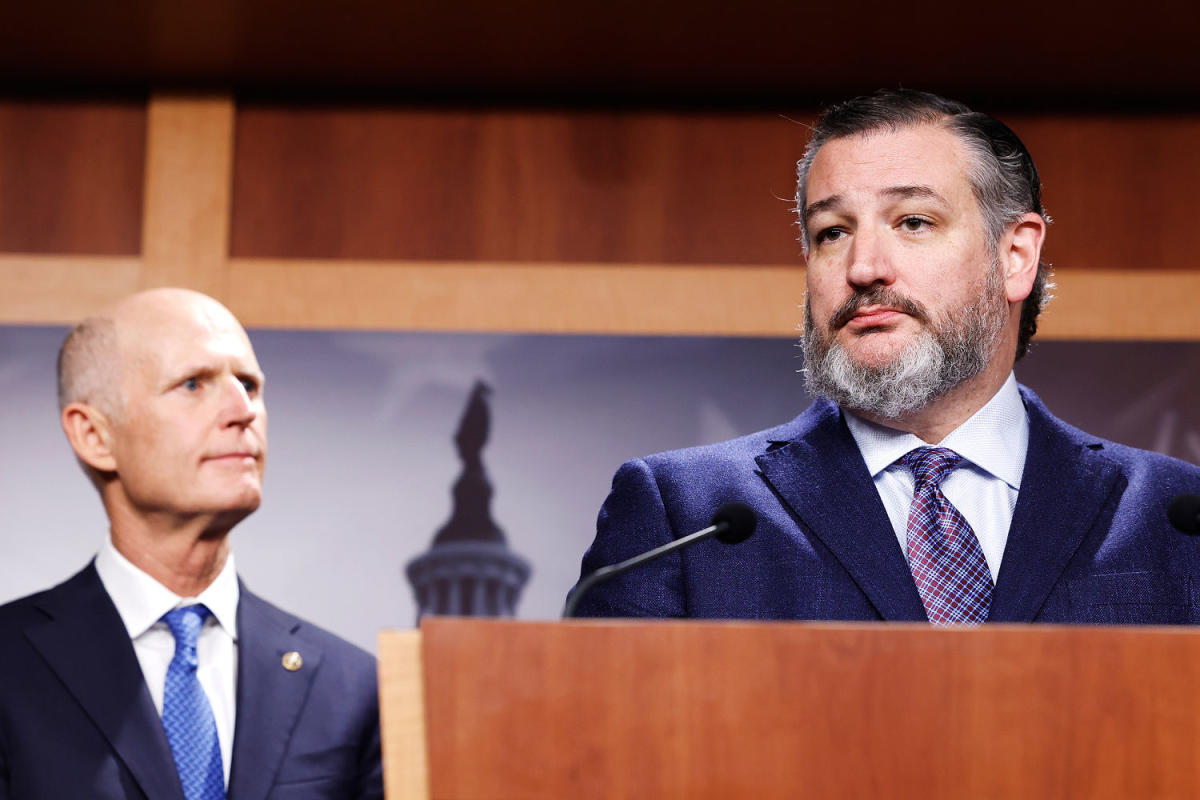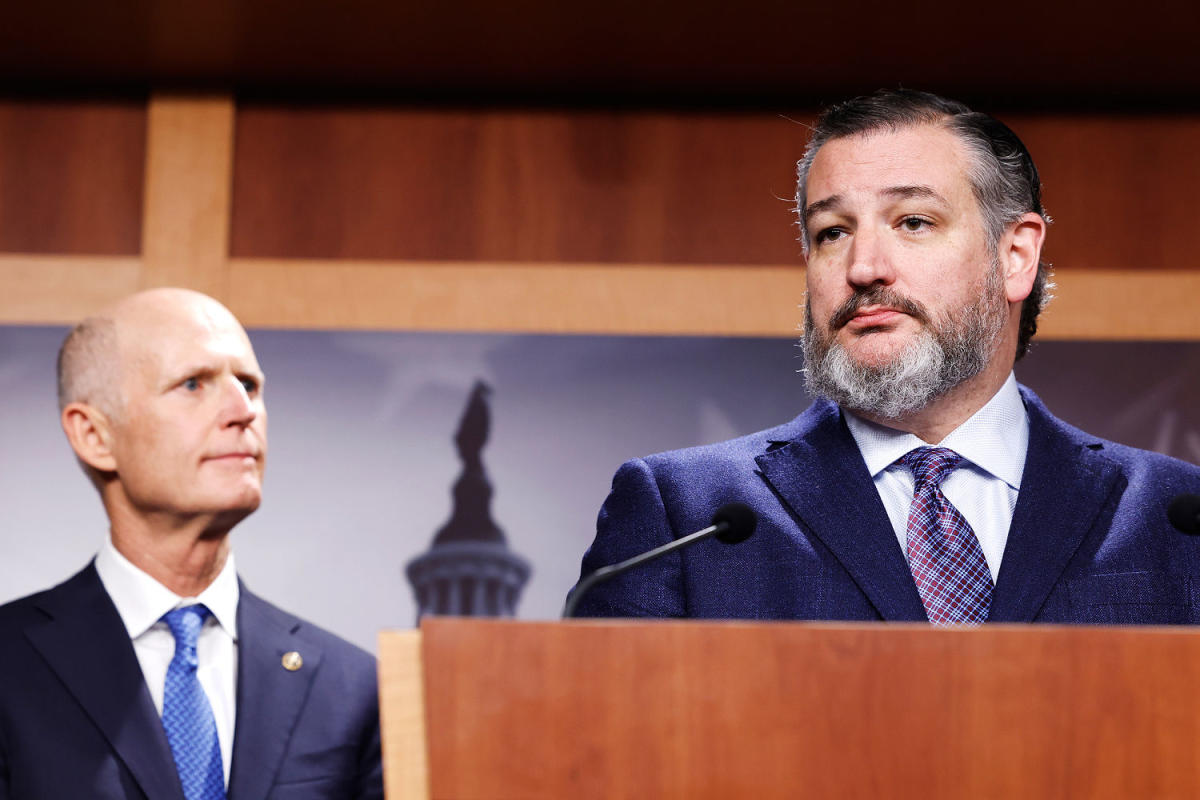
At this point two years ago, with the Senate evenly split between the parties, Republicans felt nothing but optimism about their chances of taking control of the chamber. The GOP needed a net gain of just one seat, and Sen. Rick Scott, the then-chair of the National Republican Senatorial Committee, boasted that his party had a path to a majority with 55 seats.
That didn’t happen. In fact, defying historical trends, Republicans managed to lose ground in the midterm elections, going from 50 seats to 49.
Two years later, the GOP feels even more optimism, and the party’s confidence is rooted in reality. Republicans can control the Senate with a net gain of two seats, and with Sen. Joe Manchin retiring in West Virginia, the GOP, for all intents and purposes, has already flipped one seat from blue to red.
With that in mind, Republicans need to win only one more seat, which is entirely realistic: Democrats are having to fight tooth and nail to hold on to competitive seats in Montana, Ohio, Nevada, Wisconsin, Michigan, Pennsylvania, Arizona and Maryland. To have a chance of a 50-50 split in the Senate, Democrats would have to win all of those seats.
That is, unless they’re able to flip a seat or two from red to blue.
Is that possible? The conventional wisdom is that every GOP incumbent is safe this year, but a recent report by The New York Times noted that Senate Democrats have their eyes on two of their least-liked colleagues.
Democrats have only two races to play offense in: Senator Ted Cruz’s campaign in Texas and Senator Rick Scott’s in Florida. Both men have never been personally popular in their states, but those states have been reliably Republican of late. Democrats like their candidates, Representative Colin Allred in Texas and former Representative Debbie Mucarsel-Powell in Florida, but it would most likely take severe erosion of Mr. Trump’s support to put those Senate seats in play.
Cruz barely won a second term in 2018, and this year, Allred looks like a candidate with plenty of crossover appeal. It was against this backdrop that Chris LaCivita, a senior campaign adviser for Donald Trump, wrote via social media last week, “What the hell is wrong with the Senate race in Texas?”
LaCivita added that, as far as he’s concerned, it’s “time to get some real professionals in to save” Cruz. Implicit in the message, of course, is that Cruz needs saving.
Meanwhile, Florida’s Rick Scott — who has won three statewide campaigns by incredibly narrow margins — last month started dumping quite a bit of his own money into his re-election campaign. What’s more, a handful of recent statewide polls have shown Mucarsel-Powell trailing the far-right incumbent by 5 points or less, raising Democratic hopes of a possible upset.
Let’s also not overlook the fact that Sen. Gary Peters, the chair of the Democratic Senatorial Campaign Committee for the second consecutive cycle, told reporters this week that his party is “likely” to spend more on the Texas and Florida contests.
In case that weren’t quite enough, there’s Sen. Deb Fischer of Nebraska, a Republican who was widely seen as a shoo-in for re-election — up until very recently.
There is no Democratic nominee in the race, but independent Dan Osborn — best known for having led a labor strike at a Kellogg’s plant in 2021 — appears to be faring better than expected.
How do I know that for sure? Because Republicans are starting to target Osborn with attack ads, and if he weren’t picking up support, they wouldn’t bother spending money in one of the nation’s reddest states.
Watch this space.
This article was originally published on MSNBC.com
EMEA Tribune is not involved in this news article, it is taken from our partners and or from the News Agencies. Copyright and Credit go to the News Agencies, email news@emeatribune.com Follow our WhatsApp verified Channel




